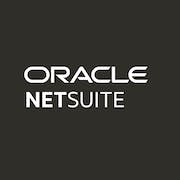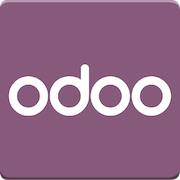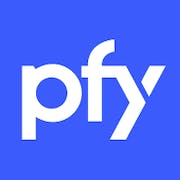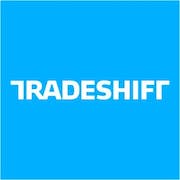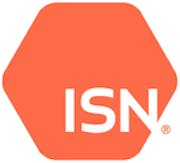Procure-to-Pay (P2P) software is a powerful solution that streamlines the entire purchasing process from start to finish. It has become a business-critical tool that empowers organizations to effectively control their procurement functions, automate manual processes, and maximize visibility over their spending. With an intuitive user interface and customizable features that cater to various industries, P2P software has revolutionized the way companies do business by accelerating accuracy, compliance, and cost-saving benefits throughout the entire procurement cycle. If you're looking for a comprehensive guide on how to choose the best P2P software for your business needs, you've come to the right place. In this guide, we'll cover everything you need to know about P2P software, including its key features, benefits, and how to choose the right solution that fits your organization's unique requirements. So, let's dive into the world of Procure-to-Pay software!
What is Procure-to-Pay (P2P) Software
Procure-to-Pay (P2P) software is a suite of tools designed to streamline the procurement process within a business. It typically covers everything from requisition and ordering to invoicing and payment. By automating these processes, P2P software provides organizations with greater visibility and control over their procurement activities, improves efficiency, reduces errors, and drives down costs. Common use cases of P2P software include: - Purchase requisition management: enables users to submit and manage purchase requests quickly and easily, while providing visibility and control to approvers and managers. - E-sourcing and contract management: helps procurement teams to identify, evaluate, and select suppliers, negotiate contracts, and manage supplier relationships. - Purchase order management: streamlines the ordering process, from creation and approval to delivery, while providing insights into supplier performance and order history. - Invoicing and receipt management: automates the receipt and processing of invoices, matching them to purchase orders and contracts, and facilitating payment. - Supplier management: helps organizations to evaluate, monitor, and manage supplier performance, compliance, and risk. P2P software is used by a wide range of companies of all sizes and across different sectors. Some of the typical industries and businesses that use P2P software include: - Retailers and wholesalers: to manage procurement and inventory. - Manufacturers: to manage supply chain and production processes. - Financial and professional services: to manage spend and expenses. - Healthcare providers: to manage supplies and equipment. - Public sector organizations: to manage procurement and spending. In summary, P2P software is a powerful tool that helps organizations to manage procurement processes more efficiently, increase financial visibility and control, and drive down costs. By automating workflows and improving accuracy, it frees up staff time and allows organizations to focus on more strategic activities.
Benefits of Procure-to-Pay (P2P) Software
Procure-to-Pay (P2P) software is a vital tool for businesses in today's fast-paced economy. With the increasing need for efficiency and cost-effectiveness, utilizing P2P software can help businesses streamline their processes and achieve better results. Here are some of the main benefits of using P2P software: - Improved accuracy and compliance: P2P software automates transactions, eliminating manual errors and ensuring compliance with regulations, policies, and contracts. This significantly reduces the risk of errors and fraud, and improves the accuracy of financial records. - Faster processing times: P2P software streamlines the procurement and payment processes, reducing processing times and allowing for faster transactions. This helps businesses improve their cash flow and meet financial obligations in a timely manner. - Cost savings: By automating processes, P2P software reduces the need for manual labor and reduces costs associated with paperwork, processing, and invoicing. Additionally, it enables businesses to negotiate better terms with suppliers and reduce the cost of goods and services. - Improved supplier relations: P2P software provides a platform for improved communication and collaboration with suppliers, enhancing relationships and reducing conflicts. This can lead to better pricing, improved delivery times, and better quality products and services. - Real-time visibility: P2P software provides real-time visibility into procurement and payment processes, enabling businesses to monitor spending, identify issues, and make informed decisions. This helps businesses manage cash flow, reduce risk, and improve financial performance. - Enhanced control and reporting: P2P software provides businesses with tools to monitor and manage spending, set limits and approvals, and generate reports and analytics. This enables better control over procurement and payment processes and improves decision-making capabilities. Overall, Procure-to-Pay (P2P) software can provide businesses with the tools they need to streamline procurement and payment processes, reduce costs, improve accuracy, and enhance relationships with suppliers. By leveraging P2P software, businesses can achieve better results, reduce risks, and improve their bottom line.
Features of Procure-to-Pay (P2P) Software
Procure-to-Pay (P2P) software is a robust platform that streamlines the entire purchasing process, from requisition to payment. Whether you're a small business looking to simplify your procurement procedures or a large conglomerate aiming to optimize your supply chain, P2P software can help. Here are ten common features of P2P software that can benefit your business: 1. Requisition Management: This feature enables employees to submit purchase requests online, improving accuracy and reducing the risk of errors and fraud. 2. Purchase Order Management: Automated purchase order generation ensures that orders are accurate, authorized, and delivered on time. 3. Supplier Management: P2P software facilitates maintaining accurate and complete supplier records, streamlining the supplier selection process while reducing risks and errors. 4. Catalog Management: Catalogs enable quick and easy purchase requisitioning, ensuring adherence to contracted pricing, improving compliance, and reducing the purchase cycle time. 5. Invoice Management: P2P software automates invoice matching, reducing errors and the need for manual intervention, thus increasing accuracy and efficiency. 6. Contract Management: This feature allows the creation and management of contracts, from negotiation to renewal, ensuring that all contract terms are met. 7. Payment Management: P2P software automates the payment process, enabling timely and accurate payments to suppliers, mitigating risks and errors significantly. 8. Governance, Risk, and Compliance Management: P2P software ensures adherence to the relevant regulations, policies, and procedures, reducing risks and promoting compliance. 9. Reporting and Analytics: P2P software provides instant and actionable insights into procurement performance, empowering informed decision-making. 10. Integration with other systems: P2P software integrates with other enterprise systems, such as ERP and financial systems, streamlining data sharing and reducing manual intervention. In conclusion, P2P software provides a comprehensive procurement solution that can benefit businesses of all sizes. Its features range from requisition and purchase management to supplier and contract management, enabling efficient operations, compliance, and cost savings. Companies adopting P2P software can leverage its complete functionality to make real-time decisions, optimize performance, and gain a competitive edge.
Considerations of Procure-to-Pay (P2P) Software
Procure-to-Pay (P2P) Software is a vital tool for modern businesses looking to streamline their procurement processes and achieve greater efficiency. By integrating purchasing, bill processing, and payment activities into a single platform, P2P software offers significant cost savings, enhanced control, and improved compliance. However, not all P2P software solutions are created equal. In this piece, we will highlight key factors that businesses should consider when purchasing P2P software. Integration and Compatibility One of the most essential factors to consider when selecting a P2P software solution is whether it can easily integrate with other systems you're already using, such as ERPs, CRMs, or other financial systems. Seamless compatibility not only saves you time but also helps prevent data errors and maintains consistency across different platforms. Functionality and Customization Different businesses have different procurement needs and requirements. Your P2P solution should be able to support your diverse business needs and workflows. Features such as custom fields, approval workflows, complex pricing structures, and inventory management functionalities can be critical when evaluating P2P software. It is essential to ensure that the software can adapt to your business needs rather than forcing your business to accommodate the software. User Interface and Accessibility Another crucial aspect of P2P software is usability. The software should be simple to use, easy to navigate, and provide access to critical information in real-time. Depending on your business needs, you'll want to consider how accessible the software is from remote locations and different devices such as tablets and mobile phones. Vendor Support and Customer Services Technical glitches and other support challenges can be frustrating and costly, especially when they affect critical business processes. Therefore, you must select a vendor that offers reliable support and customer service. Consider factors such as the vendor's support hours, the response time for support requests, and the types of support offered, such as phone, email, or chat. Security and Compliance One of the most important factors businesses should consider when purchasing P2P software is security and compliance. It is essential to ensure that the software vendors adhere to relevant security and regulatory requirements such as SOC 1, SOC 2, and PCI DSS. The software should also offer robust authentication, authorization, and encryption functionalities, especially considering the sensitive nature of procurement-related data. In conclusion, selecting the right P2P software is a crucial decision that can significantly impact your procurement operations and overall business performance. By considering the factors outlined above, you can choose a P2P solution that aligns with your business goals, workflows, IT infrastructure, security, and support needs.
Software Trends for Procure-to-Pay (P2P) Software
Procure-to-Pay (P2P) Software continues to evolve, with new trends emerging in 2023 that promise to shape the industry for years to come. Here are the biggest P2P software trends to watch out for: 1. Rise of AI and Machine Learning: P2P software is incorporating cognitive technologies like AI and Machine Learning to automate complex processes. This will help companies eliminate errors, reduce costs and improve efficiency. 2. Increased Focus on Spend Analytics: Companies are making use of P2P software to gain better visibility into their spending patterns. By analyzing data, businesses can identify opportunities to negotiate better deals with suppliers and reduce costs. 3. Mobile Enablement: With the proliferation of smartphones and tablets, mobile enablement has emerged as a key trend in the P2P software space. Mobile apps provide employees with on-the-go access to the P2P system, enabling them to quickly approve requests and keep the process moving. 4. Cloud-based Solutions: Cloud-based P2P software is gaining traction due to its scalability, flexibility and low maintenance costs. With cloud-based solutions, businesses can access their P2P systems from anywhere, at any time, and on any device. 5. Improved User Experience: P2P software vendors are putting greater emphasis on user experience, making their systems more intuitive and easier to use. This will help reduce training costs and improve adoption rates among employees. The P2P software industry is rapidly evolving, and staying on top of these trends is essential for companies looking to remain competitive in the years ahead.

